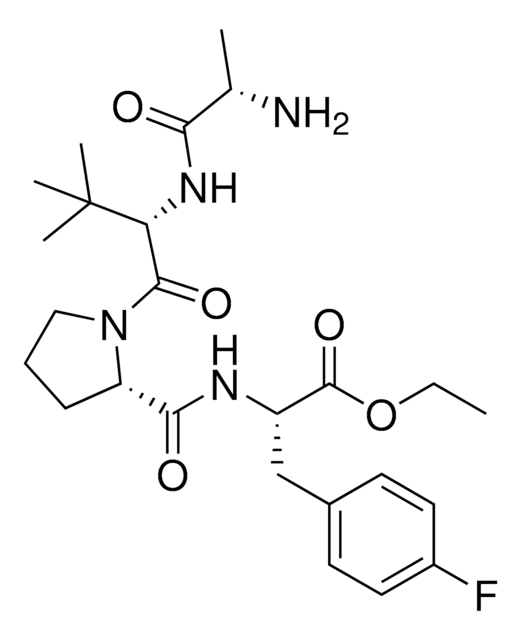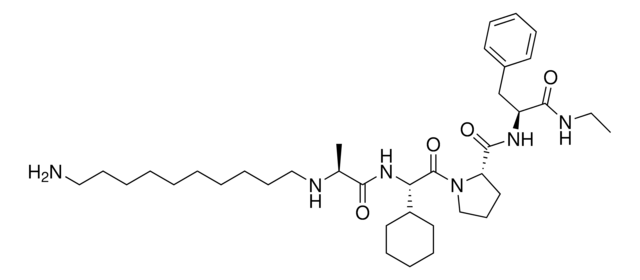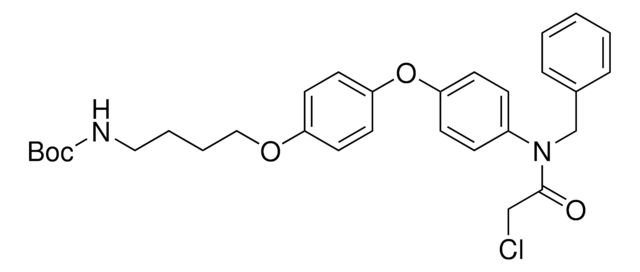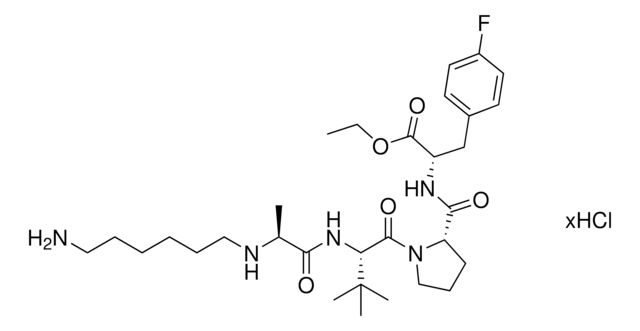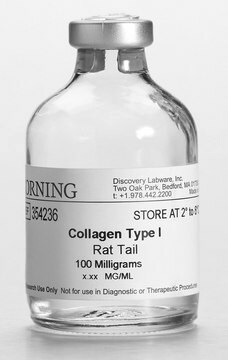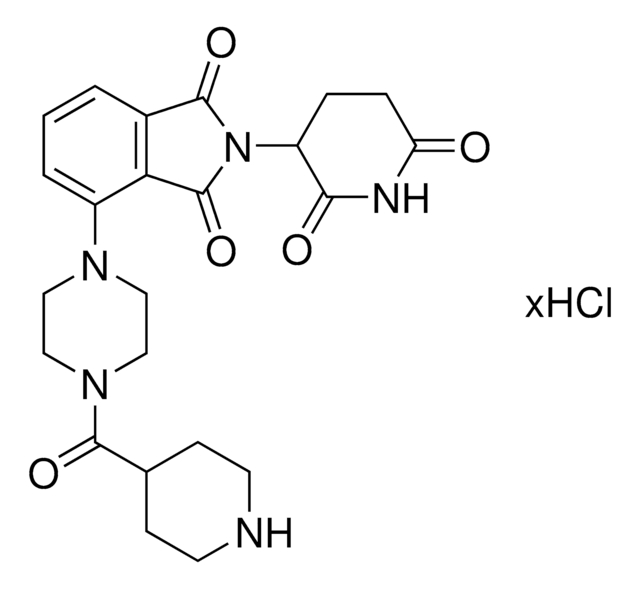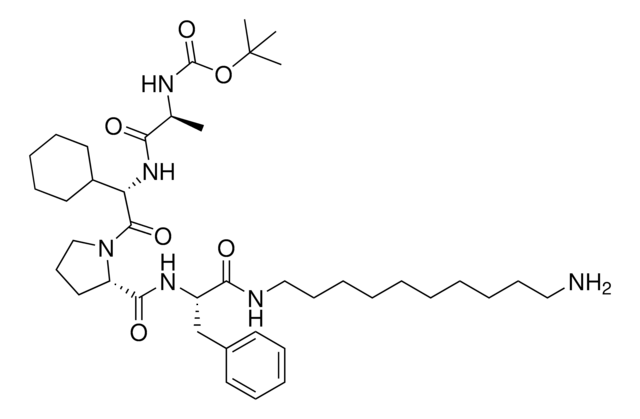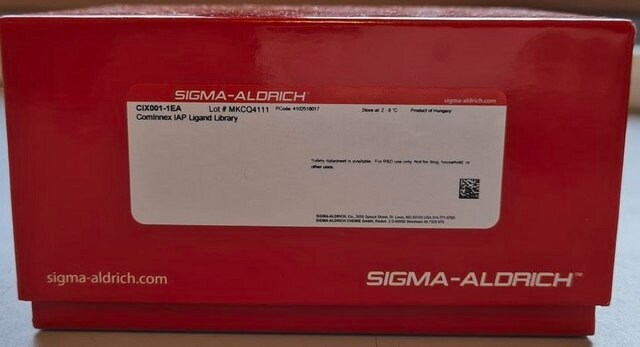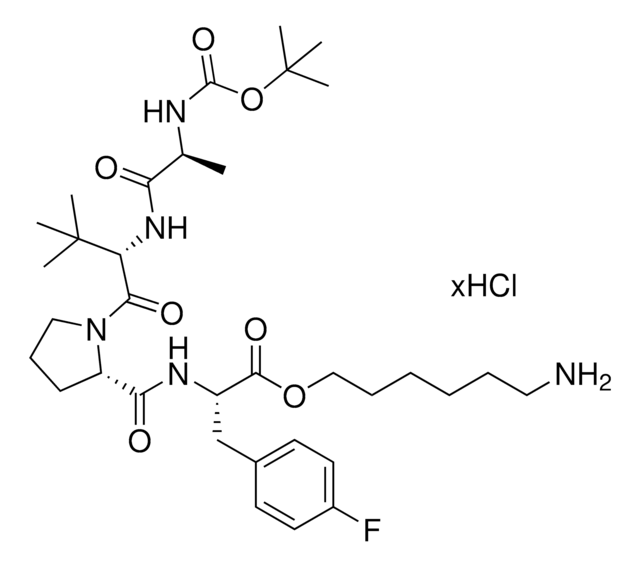917672
A1V1PF2-OEt-C10-NH2 hydrochloride
Sinónimos:
AVP conjugate for IAP-mediated protein degrader development, Ethyl (S)-2-((S)-1-((S)-2-((S)-2-((10-aminodecyl)amino)propanamido)-3,3-dimethylbutanoyl)pyrrolidine-2-carboxamido)-3-(4-fluorophenyl)propanoate, SNIPER building block
About This Item
Productos recomendados
ligand
A1V1PF2
Nivel de calidad
formulario
powder
idoneidad de la reacción
reactivity: carboxyl reactive
reagent type: ligand-linker conjugate
grupo funcional
amine
temp. de almacenamiento
2-8°C
cadena SMILES
C[C@H](NCCCCCCCCCCN)C(N[C@H](C(N1CCC[C@H]1C(N[C@H](C(OCC)=O)CC2=CC=C(C=C2)F)=O)=O)C(C)(C)C)=O.Cl
Categorías relacionadas
Aplicación
Building blocks in this series:
917710 A1V1PF2-OEt
917427 A1V1PF2-OEt-C6-NH2 hydrochloride
917672A1V1PF2-OEt-C10-NH2 hydrochloride
917923 A1V1PF2-OEt-PEG1-NH2 hydrochloride
916676 A1V1PF2-OEt-PEG3-NH2 hydrochloride
Technology Spotlight: Degrader Building Blocks with Inhibitor of Apoptosis Protein (IAP) In Silico-Derived Ligands
Otras notas
Información legal
Producto relacionado
Código de clase de almacenamiento
11 - Combustible Solids
Clase de riesgo para el agua (WGK)
WGK 3
Punto de inflamabilidad (°F)
Not applicable
Punto de inflamabilidad (°C)
Not applicable
Elija entre una de las versiones más recientes:
Certificados de análisis (COA)
Lo sentimos, en este momento no disponemos de COAs para este producto en línea.
Si necesita más asistencia, póngase en contacto con Atención al cliente
¿Ya tiene este producto?
Encuentre la documentación para los productos que ha comprado recientemente en la Biblioteca de documentos.
Artículos
This product is a plate of 80 ligands against the E3 ligase IAP The ligands were designed by ComInnex using a computational approach. Linkers can be added to these ligands allowing attachment to target ligands to create bifunctional targeted protein degraders. The ligands can also be used to discover molecular glues that bring together the IAP E3 ligase and a target.
Protein Degrader Building Blocks are a collection of crosslinker-E3 ligand conjugates with a pendant functional group for covalent linkage to a target ligand.
Nuestro equipo de científicos tiene experiencia en todas las áreas de investigación: Ciencias de la vida, Ciencia de los materiales, Síntesis química, Cromatografía, Analítica y muchas otras.
Póngase en contacto con el Servicio técnico